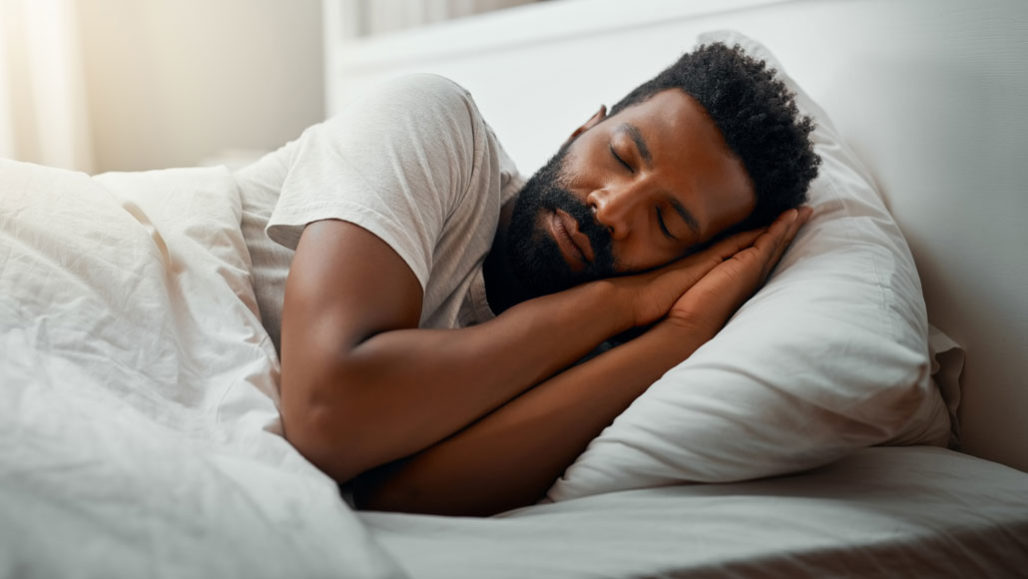
Sleep
Tips for Athletes
Busy school and sport
schedules can often lead to poor sleep habits and fatigue. Use these tips to improve your sleep and
realize your full potential.
Designate a Space for Sleep
- Avoid studying, using electronics/phones and watching TV in bed
- Keep computers, TVs and schoolwork separate from your bed area or in a different room if possible
- Keep your room free of clutter and use relaxing decorations
- Make sure your mattress is comfortable and that you have enough space
- Egg crates or other mattress covers can improve dorm mattresses
Lighting
- Light is the most important sleep regulator
- During the day:
- Make sure you get light exposure to help you stay awake
and alert
- Open your shades in the morning and take a walk outside
in between classes
- At night:
- Use low-wattage incandescent lights prior to bed
- Avoid blue light from electronics and energy efficient
bulbs one hour before bed
- Block all light during sleep, including streetlights and
lights from electronics and clocks
- Avoid turning on lights if you have to get up in middle
of the night
- Use curtains that block outside light if you need to
sleep past sunrise
- If you struggle to stay asleep in the morning, try
getting one to two hours of light exposure in the evening
Noise
- Your body gets used to noises such as
city streets, fans, and ticking clocks
- This is why you may not be able to
sleep in a new environment, even if it is quieter
- Try using “white noise” from a fan to
drown out other background noises and use ear plugs if needed
- Don’t sleep with the TV or radio on
- When traveling for overnight events,
recreate your home sleeping environment by bringing a fan for white noise,
earplugs, a ticking clock, etc.
Temperature
- The ideal sleeping temperature varies
based on the individual, but ranges from 54-75 °F
- Cooler is usually better
- Here are tips to cool down your room
if you do not have air conditioning:
- Close windows during the day when it
is hot outside and open windows at night when it is cooler
- Position a fan at the window facing
out to blow hot air out of the room
- Take a shower before bed
- Wear light cotton pajamas
- Keep a wet towel, icepack, glass of
water or spray bottle near your bed and use these items to cool off
through the night
Food and Drink
- Avoid caffeine, tobacco and alcohol
4-6 hours before bed
- Although alcohol may help you fall
asleep, it becomes a stimulant a few hours later and can cause you to
wake up during the night
- Stay hydrated but decrease water
consumption right before sleep to avoid waking up to go to the bathroom
- Finish your last meal several hours
before bed
- Avoid fatty and spicy foods before bed
- Foods with the amino acid tryptophan,
such as eggs, chicken, turkey, fish, and nuts can help you sleep
- Carbohydrates increase the effects of
tryptophan
- Evening snacks should combine sources
of tryptophan and carbohydrates (crackers with peanut butter, etc.)
Other
- If you can’t fall asleep or if you wake
up in the middle of the night, don’t get frustrated or look at the
clock. Keep the lights low and read
a book or listen to relaxing music until you feel more tired, then go back
to bed.
- Keep a steady schedule: go to sleep
and wake up around the same time every day, even on weekends
- If you take a nap, keep it short and
before 5:00 PM
- Finish workouts at least three hours
before bed if possible
- Make your bed in the morning – studies
show it may help you sleep better at night
- Lavender scents can improve sleep –
try a room spray, essential oils, etc.
- Wash sheets in hot water once per week
to help control allergies